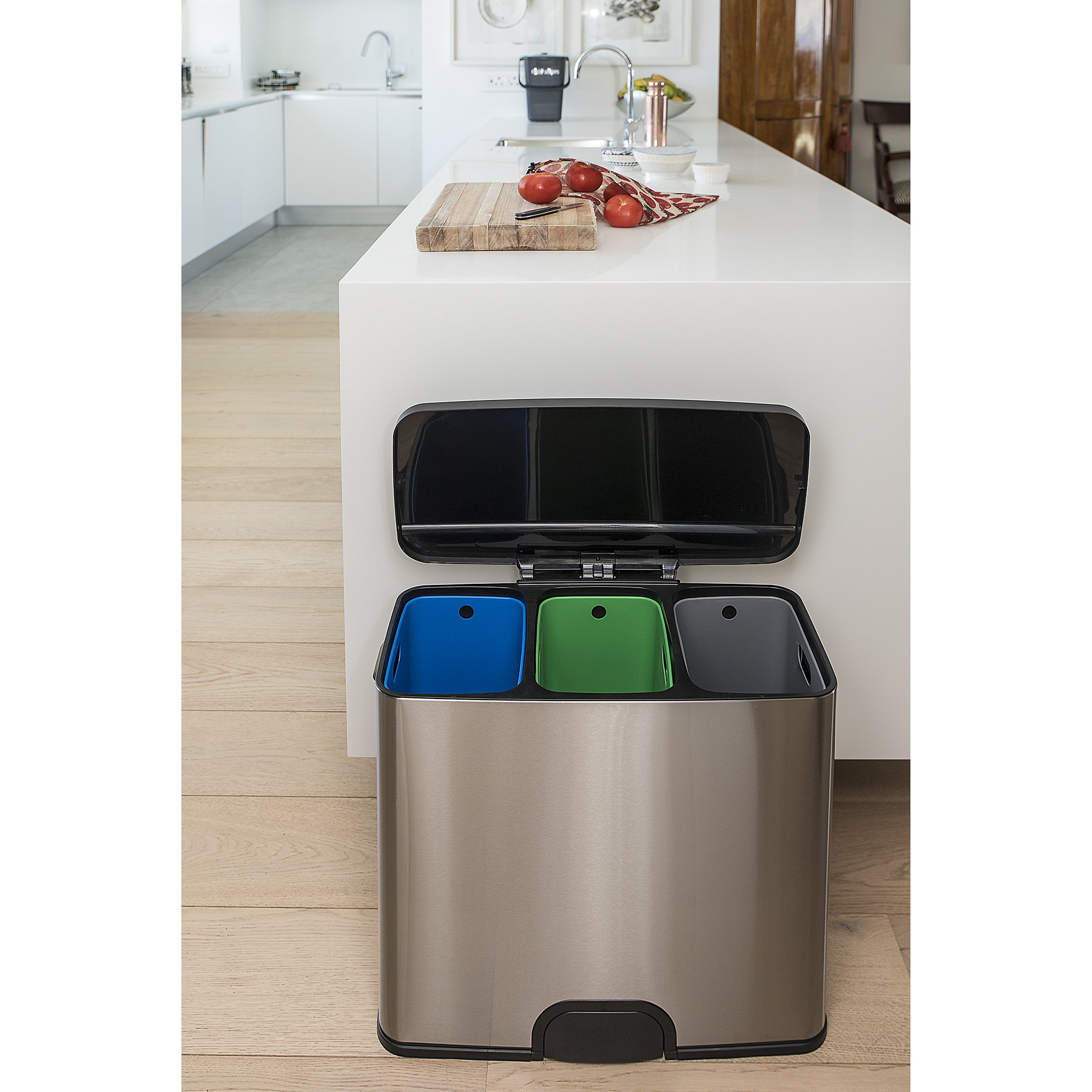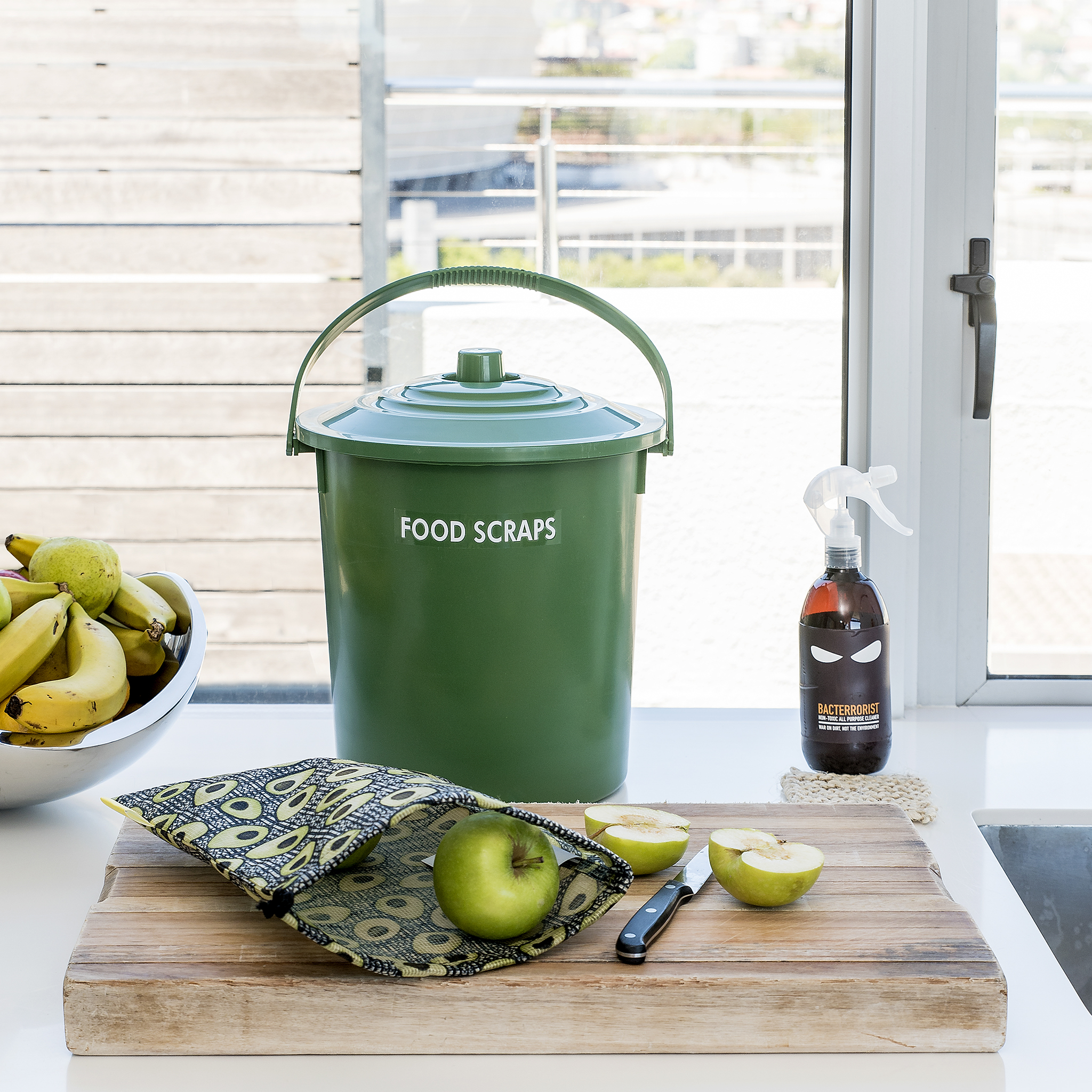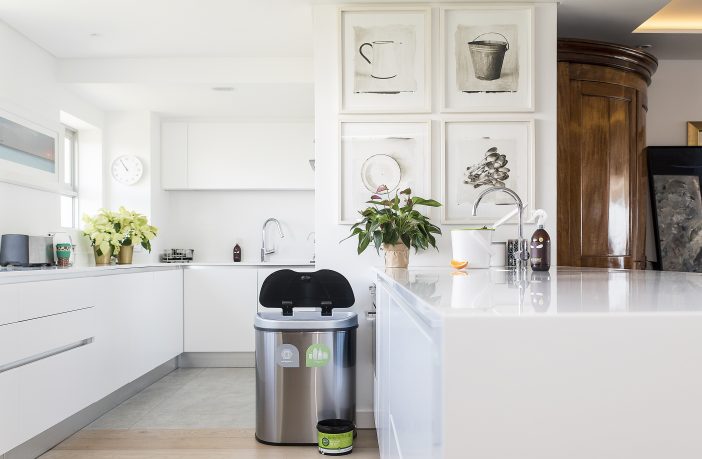- We have all heard about the benefits of separating our waste for recycling* – but are you curious on knowing what a truly waste-conscious home looks like?
- Here are some of Postwink’s recommendations if you’d like to send less to landfill and be an example to others.
Your Kitchen
Your kitchen generates the most waste in the home – hence you can really make an impact by managing your kitchen first.
Of course, a stylish recycling bin is of upmost importance (in our biased opinion). To separate your recycling from your “general waste”, you could use two separate bins from your local retailer and just label them accordingly – or you could invest in a sophisticated compartmentalised recycling bin – such as a sensor-touchless stainless steel unit. A kitchen recycling bin should help separate your dry recyclables (glass, plastic, cans, paper & cardboard) from your contaminated packaging, cling wrap, wrappers and other non-recyclables. Once full, store your bags full of recycling in your own separate colour-coded wheelie bin– or empty the content directly inside a separate compartment made in your existing wheelie bin using a wheelie bin separator. If you’re going to use plastic bags in your bin, make sure the recycling is collected using the bag provided by your service provider. If they don’t provide you with a specific bag, remember to use a clear bag to collect your recyclables, as your recycling collector** needs to see the content of the bag. (remember if they can see a lot of contamination, like food scraps mixed with your packaging for example, your recycling may not get recycled!)

Postwink’s sophisticated, compartmentalised recycling bin.
Did you know that your food waste can get recycled? Yes – it can get recycled into compost! There are multiple options for you to collect your food scraps and compost it in your own garden – or drop it off at your local composter. For easy collection of food scraps in your kitchen, you could have a counter-top bin which can be emptied into your worm farm, garden composter, compost heap – or into your Bokashi Bin (which is an airtight bin used with Bokashi bran that composts your food on site). Else collect food waste with certified Compostable Bags which can composted in your own garden or collected by a specialized collector in your area.
Is your family unsure what to throw where? Anyone is trainable – your family included! Normally, repetitive reminders help with this type of training. And when you’re tired of hearing your own voice, refer them to a Recycling List that you stick on your fridge or inside a cupboard door.
What about reducing your waste, you ask?
Of course, the kitchen is the primary, ideal place where to ensure that less waste is generated in the fist place. The obvious idea here is to shop cleverly and buy in bulk to reduce the amount of packaging you are purchasing; and to ensure you’re purchasing products in recyclable packaging. However, here are some additional ideas to consider to go above and beyond (by no means including all the possibilities!):
- Get yourself some fabric Dish covers – HALO make some beautiful ones, designed and made in South Africa. These dish covers come in different sizes and are used to cover your left-overs before these are stuck into the fridge – so you no longer need cling wrap to cover these!
- Buy your (planet-friendly) cleaning products in BULK and refill your existing bottles.
- Wrap school lunches and sandwiches using a piece of fabric or reusable food wraps.
- Invest in a quality water filter, as well as Sodastream to make cooldrinks or sparkling water – you will never buy bottled water again!

Food collection counter-top bin for the composter. Image credit: Postwink
Your Home office
Are you spending your days at your laptop, in Zoom meetings? Then, having a fancy little office recycling bin is nice to have! If you’re printing, remember that white paper has great recycling value, so keep it separate from the rest of your recycling. You can also donate it to a school near you.
Leaving the house
When leaving the house, have you got the following reusable products with you? These will save you money AND reduce your waste significantly:
- Your Reusable, washable Face masks (unfortunately, it’s become a thing!)
- Your reusable water bottles – we like glass bottles or a beautiful copper one from Coppa
- You travel mugs – whether from glass or bamboo-fibre are our best -if you’re likely to stop for a coffee somewhere,
- Your reusable produce bags – to use when buying your fruits & veg – never use those thin plastic bags again!
- And of course, don’t forget your carrier bags to bring home your groceries. Some are ideal to fit inside your handbag, while others are just too beautiful not to take along – we love the locally-made ones from Uzwelo– which are 100% made from post-consumer waste.
Having a waste-conscious home is not that hard, right? It does require a few changes to your old routine and your old purchases – but we live in unusual times, where change has become the new normal and new habits are formed. So we encourage you to use these times to make small changes that will impact not just your home – but also nature, your community and your family. Your children will thank you.
Author: Berenice Westmore
Contact: berenicew@postwink.co.za
Visit www.postwink.co.za for more information on how we can help; or shop home bestsellers on www.shoppostwink.co.za.
Looking for a recycling collector in your area, visit https://postwink.co.za/recycling-collectors/















